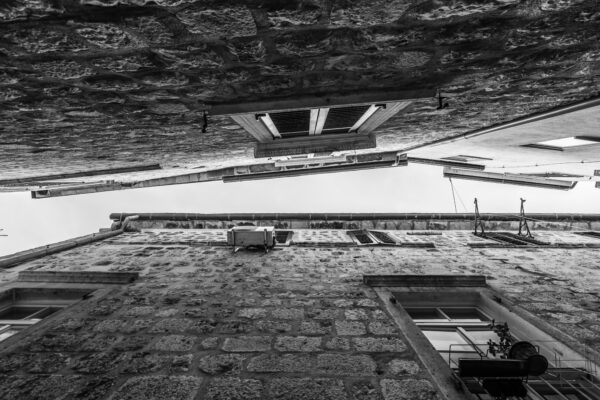Bob Dylan reminds us that “the times they are a-changing.” That very change is happening right now for many of us in philanthropy in what has been a wake-up call over the last several months. This summer, Great Britain voted to leave the European Union. Last month, France announced the closure of the refugee camp in Calais. And while we are celebrating the 27-year anniversary of the fall of the Berlin Wall, the United States just voted in a 45th President who is known for wanting to build a new wall. At the heart of each of these moments is migration, which has emerged as one of the most controversial issues of our time. In this current time, we find ourselves asking what role philanthropy is — and should be — playing in the political sphere when it comes to migration.
To get at this question, it can be helpful to consider examples of philanthropic initiatives in Europe and North America that underline the importance of looking ahead, thinking long-term, and enriching the value of political dialogue. The issues tangled up in migration require us to tread on the borders of chartered territories — and to do so with sensitivity. Most of all, these are issues that push us to come to terms with the reality of democracy and to remember the values that should be considered part of the overall purpose and legitimacy of philanthropy.
In the past, we believed that politics were a reflection of the citizens of united nations. Recent events have shown us, though, that this is not necessarily the case, and social commentary has focused on politics having “lost touch.” What then are the underlying principles of philanthropy, and how are they manifesting in the current state of politics around migration?
For one, philanthropy needs to invest in relevant research and analysis. It would be great to see more initiatives like the Expert Council of German Foundations on Integration and Migration, which provides the level of intellect and rigor needed to understand our contemporary conditions. In Canada, the Maytree Foundation initiated the Global Diversity Exchange at the Ted Rogers School of Management at Ryerson University, a “think-and-do tank” aimed at enriching the public debate on a long-term basis through model initiatives and policy thinking. Both these initiatives show that knowledge and critical thinking are crucial to making better, well-informed decisions about issues related to migration.
Second, philanthropy needs to connect with its long-standing role as a convener and enabler. For example, the King Baudouin Foundation in Brussels initiated a dialogue between imams and the wider public on the role of Islam in Belgium. The German Mercator Foundation initiated the Young Islam Conference as a dialogue forum for the next generation of Muslims in Germany. And in the Netherlands, the DOEN Foundation, the Prince Bernard Culture Fund, the Diorapthe Foundation, and other funders are working together to support citizen camp sites as an unusual, but easy, way to initiate dialogue within diverse communities. Perhaps this is where the real magic lies — in getting back in touch and connecting with one another once again.
There is also a need to mobilize the collective strength of philanthropy. A good example of this is the umbrella collaborative of foundations from around Europe and the U.S. under the European Programme for Integration and Migration (EPIM). Through grantmaking, capacity development, and networking, the 11 funders making up EPIM work together toward the goal of strengthening the role civil society plays in advocating for constructive approaches to migration in Europe. Partnership and collaboration are tools that can always go hand in hand with philanthropy and help move issues forward.
Although it can appear contradictory to the belief held by some that philanthropy should play the role of neutral convener, foundations must also openly support our democratic values. This can prove to be challenging, because taking a stand means not everybody will be onboard. In Germany, Offene Gesellschaft is a good example of just that. An organization that came into being as a civil society reaction to right-wing populism, Offene Gesellschaft, which translates to “The Open Society and its Friends,” focuses on promoting dialogue around freedom and democracy. Not unknown to the nation’s larger foundations, the organization is supported by the Bosch and Bertelsmann Foundations, among others. According to Andre Wilken, one of the founders of the initiative, the organization uses things like town hall meetings, films, and theater “to bring together people, curate activities, create scale, and ignite public and political attention” about what is needed to support an open society.
This example shows another direction that philanthropy should be moving in — getting out of offices and conference halls, and, with the help of grants, focusing on capacity building. Philanthropy is a value-based field, even in impact-driven times. ![]() It is ideologically rooted in democracy, political discourse, and human rights, and functions as a counterweight against bad civil society and the restriction of liberties and overall openness.
It is ideologically rooted in democracy, political discourse, and human rights, and functions as a counterweight against bad civil society and the restriction of liberties and overall openness.
When faced with the reality that “the times they are a-changing,” the diverse philanthropic community should re-explore commonalities across borders. In the end, we all strive for a better way to live together. And, knowing that philanthropy can inspire us every day, the examples set by our neighbors should serve as inspiration to work effectively toward social change.
Michael Alberg-Seberich is executive partner at Active Philanthropy, a not-for-profit organization in Berlin that brings together individuals and families from all over Europe who want to make the world a better place. He also is managing director of Beyond Philanthropy, a social business owned by Active Philanthropy that provides philanthropy advice for families, foundations, and businesses.
Diya Khanna is a Canadian journalist, educator, and humanitarian with a focus on diversity and migration. She is currently working with Active Philanthropy and several other local organizations toward aiding the integration of refugees in Germany.



